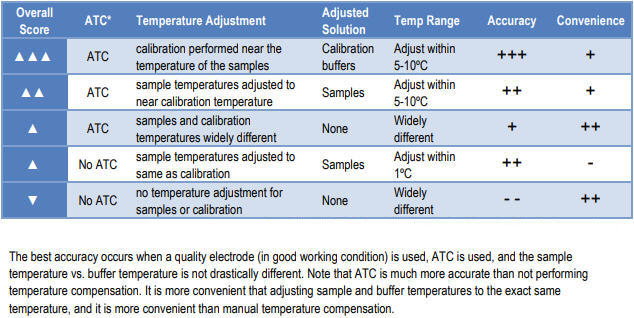Bubbles2
Well-Known Member
New PH meter, Dr. Beverage testing it in Hanna Sachets 7.01 and 4.01
https://www.amazon.com/dp/B00ST3VTQ4/ref=nav_timeline_asin?_encoding=UTF8&psc=1
What is .14 equate to, when the meter is supposed to be accurate .02 + or -
I guess my question is the scale the meter uses to roll over to a whole number.
6.87 + .14 = 7.01 Meaning that it is not 100's to roll the .87. The .87 rolls to 7 at + .13 meaning this meter is off .14 ? 6.87 + .14 ='s 7.01 ?
I measured my Hanna 7.01 sachet and it calibrates to 6.87
I measured my Hanna 4.01 Sachet and it calibrates to 4.00
Storage solution read 3.34
I bought the Dr Bev after buying an Apera meter which is not as sensitive.
Dr Beverage is supposed to be .02 + or -
Apera is supposed to be .1 + or -
https://www.amazon.com/Apera-Instru...=2025&creative=165953&creativeASIN=B01ENFOHN8
Apera Meter test / same sachets
4.1 in 4.01 sachet
7.1 in 7.01 sachet
Storage solution read 3.4
https://www.amazon.com/dp/B00ST3VTQ4/ref=nav_timeline_asin?_encoding=UTF8&psc=1
What is .14 equate to, when the meter is supposed to be accurate .02 + or -
I guess my question is the scale the meter uses to roll over to a whole number.
6.87 + .14 = 7.01 Meaning that it is not 100's to roll the .87. The .87 rolls to 7 at + .13 meaning this meter is off .14 ? 6.87 + .14 ='s 7.01 ?
I measured my Hanna 7.01 sachet and it calibrates to 6.87
I measured my Hanna 4.01 Sachet and it calibrates to 4.00
Storage solution read 3.34
I bought the Dr Bev after buying an Apera meter which is not as sensitive.
Dr Beverage is supposed to be .02 + or -
Apera is supposed to be .1 + or -
https://www.amazon.com/Apera-Instru...=2025&creative=165953&creativeASIN=B01ENFOHN8
Apera Meter test / same sachets
4.1 in 4.01 sachet
7.1 in 7.01 sachet
Storage solution read 3.4
Last edited:



















![Craft A Brew - Safale S-04 Dry Yeast - Fermentis - English Ale Dry Yeast - For English and American Ales and Hard Apple Ciders - Ingredients for Home Brewing - Beer Making Supplies - [1 Pack]](https://m.media-amazon.com/images/I/41fVGNh6JfL._SL500_.jpg)







































